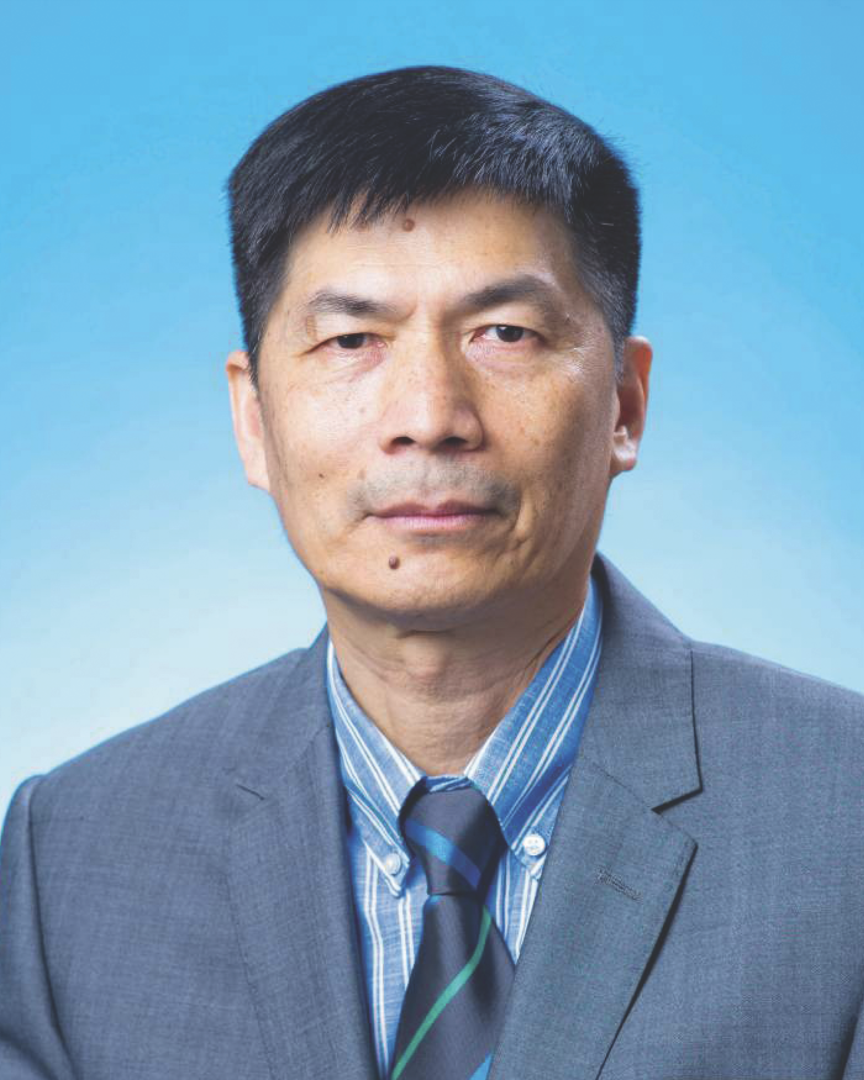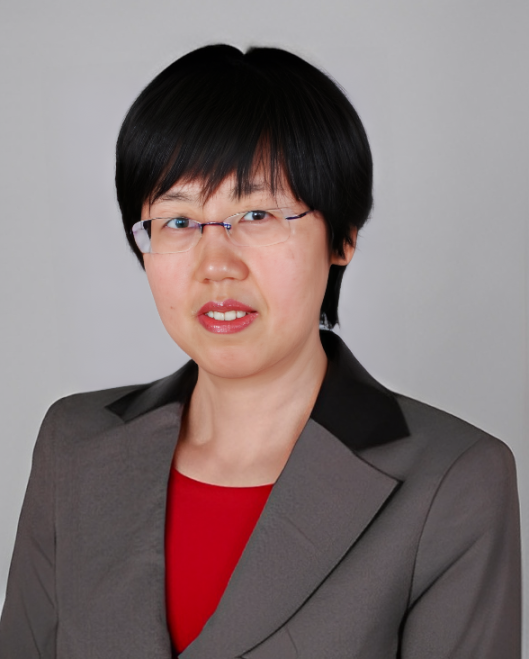
Prof. Youfu Li IEEE Fellow City University of Hong Kong, China |
Biography:Prof. Li received the B.S. and M.S. degrees in electrical engineering from Harbin Institute of Technology China. He obtained the PhD degree from the Robotics Research Group, Dept of Engineering Science of the University of Oxford in 1993. From 1993 to 1995 he was a postdoctoral research staff in the Dept of Computer Science, University of Wales, Aberystwyth, UK. He joined City University of Hong Kong in 1995 and is currently a professor in the Department of Mechanical Engineering. His research interests include robot sensing, robot vision, 3D vision, visual tracking, sensor guided manipulation, mechatronics and automation. In these areas, he has published over 180 papers in SCI listed international journals. Dr Li has received many awards in robot sensing and vision including IEEE Sensors Journal Best Paper Award by IEEE Sensors Council, Second Prize of Natural Science Research Award by the Ministry of Education, 1st Prize of Natural Science Research Award of Hubei Province, 1st Prize of Natural Science Research Award of Zhejiang Province, China. He was on Top 2% of the world’s most highly cited scientists by Stanford University, 2020. He has served as an Associate Editor of IEEE Transactions on Automation Science and Engineering (T-ASE), Associate Editor of IEEE Robotics and Automation Magazine (RAM), Editor of the IEEE Robotics Automation Society's Conference Editorial Board (CEB) and Guest Editor of IEEE Robotics and Automation Magazine (RAM). He is a fellow of IEEE. Title: Visual sensing and tracking for human-robot interactions Abstract: Visual tracking is important for many engineering applications including robotics. In this talk, I will present our research in visual tracking in general and 3D tracking and gaze tracking in particular. Different approaches investigated in the research will be reported with the related issues presented. Gaze tracking can be useful for communicating human intentions to the robot as an interface. However, tracking an object via estimating the 3D points of gaze (POG) in space is very difficult to achieve. The primary challenges here include the tedious calibration with conventional approach, the extrapolation and parallax errors, and large visual axe errors. I will report our work in addressing these challenges and developing an HMGT system for flexible implementation. A new data acquisition method is proposed to collect the training gaze data. An outlier removal method is proposed based on smooth-pursuit to identify the user’s distractions during the calibration process thereby improving the reliability of the training data. To solve the problem of the inflexible calibration procedures and errors in depth estimation for head-mounted eye tracking systems, we also propose a 3D gaze estimation approach with an auto-calibration method. When the calculated 3-D POG in the scene camera coordinates is transformed to the world coordinates, it can be used in human-robot cooperation for different manipulation tasks. |
 |
Prof. Zheng Yan IEEE Fellow, IET Fellow, AAIA Fellow, AIIA Fellow Xidian University, China |
| Biography:Yan Zheng is a female professor at Xidian University, where she serves as a leading "Huashan Scholar," doctoral supervisor, and Fellow of IEEE, IET, AAIA, and AIIA. She was also named an Academy Fellow by the Finnish Academy of Science in 2017, has been recognized as a top 2% global scientist since 2019, and has been a highly cited scholar in China by Elsevier since 2020. She holds a Bachelor's degree in Information Science and Engineering from Xi'an Jiaotong University, a Master's degree in Computer Organization and Architecture from the same university, and a Master's degree in Information Security from the National University of Singapore. She has been a professor at Xidian University since July 2011. She has long been dedicated to research in trust management, blockchain, information and network security, privacy protection, and data analysis. Over the past decade, she has led or participated in more than 30 projects, including key R&D projects from the Ministry of Science and Technology, National Natural Science Foundation projects, and international cooperation initiatives. She has innovatively proposed a trust management mechanism that adapts to dynamic trust changes while ensuring autonomy and privacy protection. She has also developed a series of security and privacy technologies controlled by trust, which have been widely applied in next-generation wireless communication networks, ubiquitous social networks, cloud computing, IoT, and embedded software. Her work on decentralized trust management supported by blockchain has addressed the challenge of trust management in environments lacking trusted nodes. Title: Usable Voiceprint Authentication Services with High Security and Privacy Preservation Abstract: Voiceprint authentication offers convenient user authentication and access control through voice feature recognition. However, existing voiceprint authentication systems are vulnerable to various adversarial attacks, and they often suffer from voice privacy leakage and usability limitations. Previous efforts have struggled to address these issues comprehensively. In this talk, I introduce three systems about usable voiceprint authentication services with high security and privacy preservation: VOLERE, LiVoAuth, and SeVoAuth, all are cloud-based voiceprint authentication systems designed to provide privacy preservation, robust security, and enhanced usability. VOLERE stores a synthesized voiceprint of a user in the cloud during user registration, thereby safeguarding the privacy of the original voiceprint. LiVoAuth uses liveness detection during user authentication to resist attacks. SeVoAuth applies a hash function to continuously transform features of the synthesized voiceprint, dynamically generating new verification targets for voiceprint feature mapping in each session. This dynamic transformation approach effectively mitigates replay, spoofing, and adversarial attacks. We conduct a thorough analysis on their security and privacy and proceed to implement prototypes for performance evaluation through a series of user tests. The results demonstrate that our systems are highly secure, efficient, and user-friendly across various circumstances, outperforming cutting-edge approaches. |
 |
Prof. Xingjian Wang National-Level Young Talents Beihang University, China |
Biography:Xingjian Wang received his Ph.D. and B.E. degrees in Mechatronic Engineering from Beihang University, China, in 2012 and 2006, respectively. From 2009 to 2010, he was a visiting scholar in the School of Mechanical Engineering, Purdue University, West Lafayette, IN, US. He is currently with the School of Automation Science and Electrical Engineering, Beihang University, Beijing, China. His research interests include nonlinear control for mechatronic systems, fault diagnosis and fault-tolerant control, biomechatronics and human-machine interaction control, bio-inspired robotics. He has published over 100 papers. His research has been supported NSCF and other grants in China. He is the Secretary-General of Industry Committee of Fluid Power Transmission and Control Institution (FPTCI), China Mechanical Engineering Society (CMES), the Deputy Director-General of Organization of Aviation Utility Systems (AUS), Chinese Society of Aeronautics and Astronautics (CSAA) and the Deputy Secretary-General of Technical Committee of Fluid Power Transmission and Control (FPTC), CSAA. He is also a senior menber of CMES, a menber of CSAA and a member of IEEE. Title: Fault Diagnosis and Fault-Tolerant Control of Aircraft Control System Abstract: According to the control command of the pilot or the autopilot, the aircraft control system drives the aircraft rudder through the servo actuator to realize the aircraft attitude and flight trajectory control. It can be seen that the healthy service of the aircraft control system directly affects the flight safety and is a very critical airborne system. In order to realize the highly reliable and healthy service of the aircraft control system, the health status assessment and remaining useful life prediction of the key components of the aircraft control system, the key technology of fault diagnosis for the airborne hydraulic system, and the high safety hierarchical active fault-tolerance control strategy were carried out to effectively improve the healthy service capability of the aircraft control system. |


